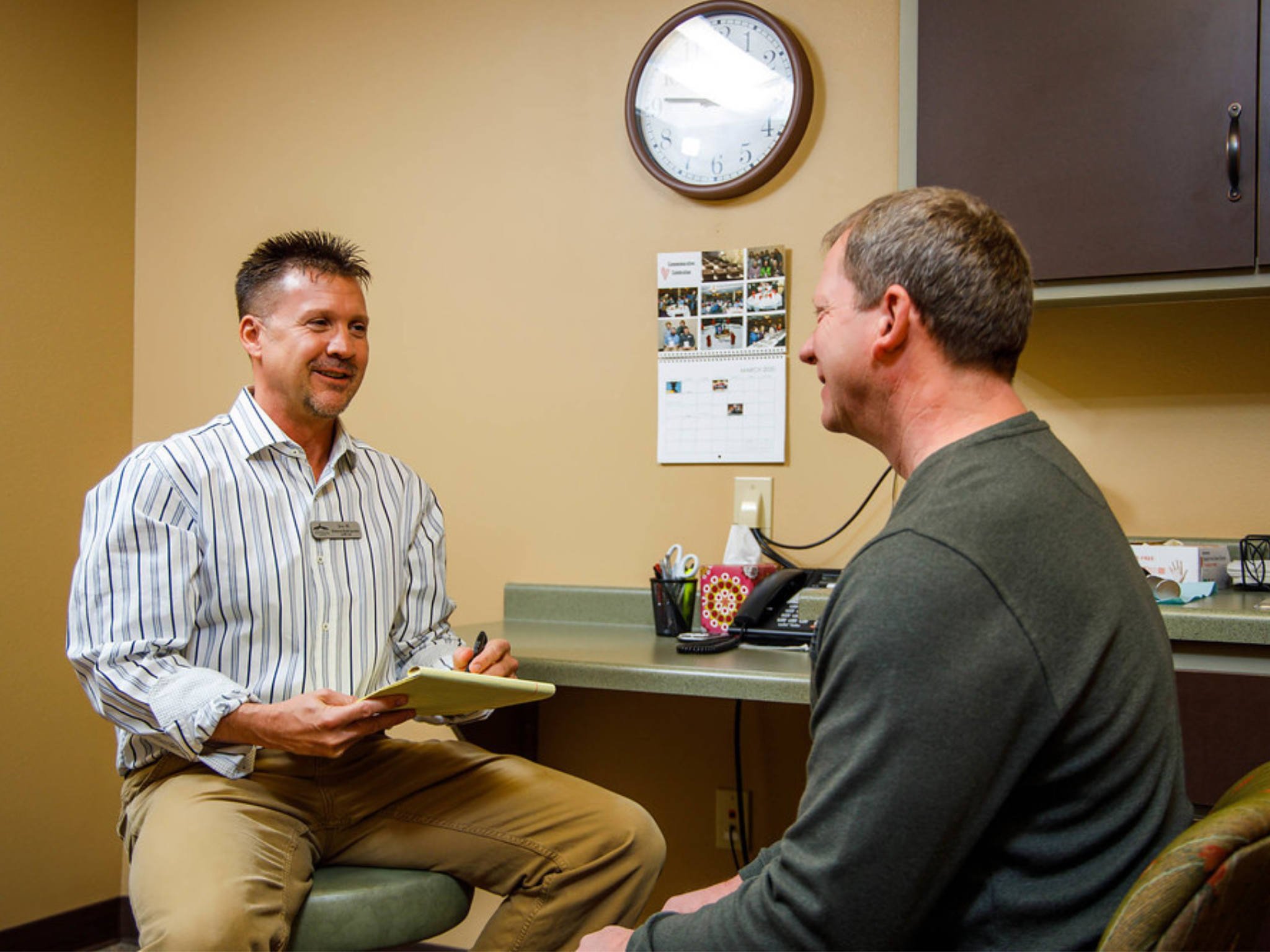Strategies to boost patient confidence and resilience- by Leah Black
Living with Hemophilia A can be overwhelming for patients and their families. Not only is it a serious disease that can lead to complications such as bleeding and joint damage, but the treatment itself is burdensome, requiring frequent intravenous infusions of clotting factor concentrates. Patients find their quality of life affected not just physically, but psychologically and socially as well, with work, school and relationships all impacted. Studies show that one-third of hemophilia A patients have depressions symptoms, while self-esteem and self-autonomy are also negatively impacted.
However, with the right guidance and tools, patients can overcome many of their disease-related challenges. “We want people with hemophilia A not to have any less opportunity than you or I might have without it,” says Leonard Valentino, MD, president of the National Hemophilia Foundation (NHF) and founder of the Hemophilia and Thrombophilia Center at Rush University Medical Center in Chicago. “The more educated patients are about their disease and treatment options, the better than can function and integrate into whatever lifestyle they choose.” The following topics can help patients live life to the fullest.
Find a treatment schedule that work
The time commitment involved from prophylaxis is one of the main struggles for patients and their parents, who must administer infusions several times a week. Yet, adherence is critical: In one Study, 69% of participants who interrupted prophylactic treatment one or more times from the start of prophylaxis in childhood had significantly more arthropathy 20 years later as a result. Helping patients and families develop a treatment schedule that fits their lifestyle is therefore key.
“We try to figure out: When do the parents work, are kids in school, are there going to be sports involved? We don’t ever say it needs to be a Monday and Friday treatment schedule; if weekends are more relaxed, we try to fit that into their [regimen],” says Andrea Miller, RN, BSN-BC, nurse coordinator at the Hemophilia Outreach Center in Green Bay, WI. If a patients is struggling, Miller says not to lecture but to listen. “They need us to hear the reasons they are having a hard time, and help them find a better way.” Miller notes that the different medications on the market offer increased flexibility. “Some are a little longer-acting and might be better for a family that is busy and doesn’t have time for a three-day-a-week infusion schedule,” she says.
Ease anxiety about infusing in public
Dr. Valentino recalls working with college-aged patients who hid their hemophilia from roommates, finding places to infuse in secret. “The stress that imparts is enormous,” he says. Instead, he encourages patients to be open and honest about their disease. ‘It’s no different than somebody having a knee replacement. You wouldn’t force a friend to walk up and down the stairs if you knew that was going to be a challenge for them. [Just like] you need to do what’s necessary to take your mediation and if that means injecting a hemophilia medication in public, there should be no stigma with that,” he says.
Miller teams up with younger patients to organize presentations at their schools to help educate their peers. “As the kids get older they will do them with us,” she says. “They think its the coolest thing to pull out a needle and show everyone how they poke themselves- all their friends are in awe and they are the popular one all of the sudden!”
Provide guidance on physical activity
“We strongly encourage our patients to be physically active. They really should not be sedentary,” says Dr. Valentino. Unlike in decades past when patients’ activity was restricted, “today’s treatment regimens are so good that the limitations should be relatively minimal.” Not only is exercise good for patients’ physical and mental well being, but it supports joint health, which is essential for people with hemophilia A. “maintaining flexibility , range of motion and muscle strength is really important to protecting joints, which is where patients’ bleed primarily occur,” says Dr. Valentino. A healthy weight will also decrease stress on joints.
For patients who want to play sports, “It’s all about mitigating risk,” says Dr. Valentino. While high-impact activities like boxing and football are discouraged, most athletics are okay with the right precautions. For instance, Miller has a patient who likes to lift weights and play basketball on Tuesdays and Thursdays- which for him can cause a lot of bleeds- so they adjusted his schedule to infuse on those days. It’s important for patients to know they can still do the things they love- “just with a little guidance on how to obtain that freedom,” says Miller.
Offer techniques to handle needle pain
For some patients, pain can be a barrier to treatment. In one study, a patient with severe hemophilia noted that he “intentionally forgets treatment if he is at a lower risk of injury (e.g., when staying at home) because of the pain the infusion causes. A pain-management technique Dr. Valentino recommends is guided imagery, a meditative practice that a nurse, psychologist or social worker can teach. “Patients still have the pain, but they don’t appreciate the pain as much,” he says.
For children, Miller advises using a numbing cream over the infusion site or if the idea of the needle is the problem, a bee shaped device called a Buzzy (available on amazon.com). “it sits on the arm above where you’re going to [infuse] and the vibrations distract the brain from feeling the pain,” she explains.
Help parents and caregivers manage stress
Many caregivers find that infusing a child presents unique challenges. Moms especially struggle, says Miller, since hemophilia A is passed from mother to son (or to daughter as a carrier). “Not only does they struggle with the guilt of thinking, ‘I gave this disease to my son,’ but they also think, ‘Now I have to hurt him,’ or ‘He’s in pain and its my fault.” Miller recommends walking parents through the process of doing an infusion until they are comfortable with the steps involved. “we spend a lot of time talking about the fear they may have of hurting their child with a needle. If it takes multiple times of them coming in with their child to practice, we tell them, ‘That’s okay!’” She also gently reminds parents that their children can sense their stress and anxiety. Support groups are hugely beneficial to caregivers who are struggling, offering a place to talk with other parents and trade advice om managing stress. “The older moms get to encourage them that it does get easier- that their children will grow up to be independent young adults someday,” says Miller.
Assist in building a support network
Patients with hemophilia A usually need help with health related complications, and this affects the social support they require. Dr. Valentino says “the hub of patients knowledge and support” should be a Hemophilia Treatment Center (HTC), home to a multidisciplinary tea, of doctors, nurses, physical therapists, social works, psychologists and other experts, specializing in bleeding disorders. In addition to one-on-one care, HTCs also provide educational programs, support groups, mentoring opportunities and other services to help patients and families cope with their disease. (There are more than 140 HTCs in the United States; visit cdc.gov for a directory)
Additional support can be found through the NHF, which runs a network of state chapters that organize social and educational events and are a great way to connect with like-minded patients (visit hemophilia.org). “Being associated with a chapter really helps facilitate a sense of community,” says Dr. Valentino.
Another thing that is integral to patients support network: family and friends, who provide not just emotional support but practical help with day-to-day care. “Some of our college kids have actually trained their friends how to infuse, so for instance in an emergency, if they were to hit their head and go unconscious, their friends know what to do and to call 911, etc.,” Miller explains. “It just helps patients be more at peace with the disease process.”
Address concerns about work and career
Some patients feel limited in their job choices, or that coworkers view them as less productive because of frequent absences due to treatment. For these patients, it can help to have a letter from a health professional on file to offer to their employer. “it lets the employer understand that this person is not being lazy- they truly have a disease that does impact them,” says Miller, who has also had phone discussions with employers on behalf of patients. Patients can also fill out paperwork under the Family and Medical Leave Act (FMLA) in the event they need to take time off to infuse for a bleed or are suffering complications that prevent them from working. When it comes to interviewing for a potential job, Miller recommends patients find out what benefits are available without feeling compelled to share their diagnosis right off the bat. “The reality is they have to make sure its an insurance plan that is going to cover [their treatment],” she says.
Emphasize the importance of a positive attitude
Dr. Valentino says patients thrive when “they address their disease and embrace it to some extent, rather than hide from it.” Indeed, research supports this concept: One study found that patients with a better perception of their disease are better at coping with it. Instead of focusing on what the disease has taken from them, encourage patients to flip their perspective and think about how its made them stronger. “We have head from patients that they would not trade their hemophilia because it has made them into the person they are,” says Dr. Valentino.
Fostering a positive outlook starts when patients are young; many families participate in hemophilia summer camps, which include volunteer doctors and nurses, where kids as young as age 7 can build up their confidence and independence (for a list of camps, visit hemophilia.org). “They get to hang out with kids who have the exact same disease and have to do the same infusions,” says Miller. “We hear from so many parents whore kids rub it in to their siblings that they have hemophilia and they get to do fun things their siblings don’t! They look at their disease as something that has opened up doors for them.”




